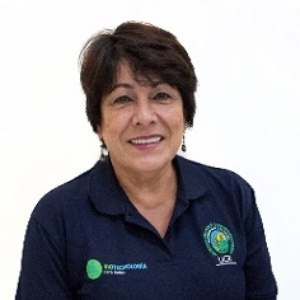Title : Rice genome editing: a contribution to climate change mitigation and achievement of food security in Costa Rica Marta Valdez-Melara
Abstract:
Abiotic factors, such as drought, salinity, and high temperatures are limiting agricultural production. Also, under the pressure of rapid population growth, climate change and evolution of agricultural pests and diseases, new genome-editing technologies are the next green revolution and provide new genetic variations to improve yield, quality, and resistance to biotic and abiotic factors in cultivated plants. In this sense, our study focuses on the modification of the active site of the enzyme trehalase using CRISPR/Cas 9 to confer tolerance/resistance to salinity in rice. As a result, a protocol for genetic transformation of rice embryogenic calli using A. tumefaciens was established. Four plasmids with the RNAg for the trehalase gene (Os10g0521000) were developed. However, the diverse applications of modern biotechnology arouse enthusiasm and mistrust in society, so it has both advocates and adversaries. These concerns could impact on national and international policies. In this sense, the public perception of society must be taken into account if it is considered that the new genome-editing strategies can contribute to food security by introducing new traits in the crops. For this reason, the present study aims to investigate the role of collective communication in shaping a certain perception towards new genome-editing strategies in plants, as well as to analyze the perception and attitude of Costa Rican society to new strategies of editing genomes in plants. Also, in these new genetic improvement strategies, governments should consider their regulatory status and establish appropriate regulations if necessary. That is why the present research is proposed to analyze the regulatory framework of Latin American countries around the new genome-editing strategies in plants. This would allow the strengthening of regulatory frameworks and science-based decision-making to foster innovation, research, and trade in products derived from new genome-editing technologies.
Take Away Notes:
• The audience will learn how to address an agricultural problem: the effect of drought and salinity in tropical crops such as rice, from a multidisciplinary perspective.
• The audience will know how we investigate in a developing country, with few economic resources but with a great inter and multidisciplinary effort. Also will learn how to edit the rice genome, which could be applied to other agricultural crops.
• Of course, our research may be used by professors in fields such as biotechnology, genetic engineering, communication, regulatory framework, among others.


